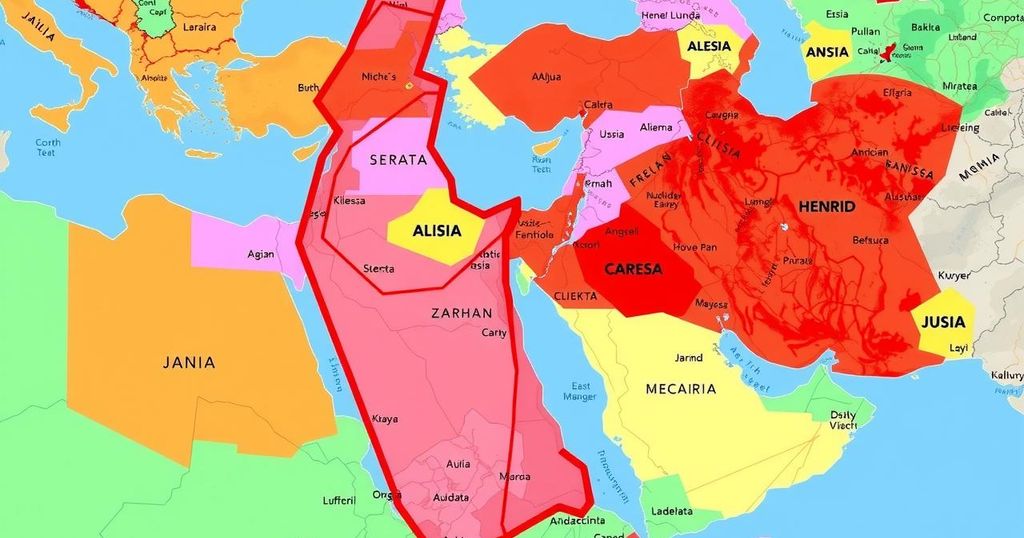Iraqi Militia Leader Warns of Regional Consequences in Event of U.S.-Iran Conflict

The leader of the Badr Organization, Hadi al-Amiri, cautioned that a U.S.-Iran war could lead to widespread conflict in the region. This warning arises amid rising U.S.-Iran tensions over Iran’s nuclear program. Several Iraqi militias have also threatened U.S. interests. Diplomatic engagement is deemed crucial to prevent further escalation.
The leader of the powerful Iraqi militia, the Badr Organization, has issued a caution against potential conflict between the United States and Iran. Hadi al-Amiri emphasized that any warfare ignited between the two nations is likely to encompass the entire region, exacerbating already heightened tensions. This warning comes in response to President Donald Trump’s threats regarding military action to prevent Iran from achieving nuclear capabilities.
This rising tension stems from ongoing disputes over Iran’s nuclear ambitions, which the Iranian government claims are strictly for civilian purposes. Despite these claims, Tehran’s ties with Russia and China have raised concerns among U.S. officials, especially given Iran’s support of militant groups that oppose U.S. interests and allied nations such as Israel. The Badr Organization has previously faced U.S. airstrikes for its role in threatening American forces in Iraq.
Al-Amiri articulated his concerns further, asserting that any conflict would extend beyond the U.S. and Iran, igniting widespread unrest throughout the Middle East. The U.S. has exchanged military threats with Iran recently, coinciding with stalled negotiations surrounding the nuclear program, a critical area of concern for U.S. foreign policy.
In addition, President Trump has expressed dissatisfaction with Iran’s funding of various proxies in the Middle East, which includes groups like the Houthis in Yemen and Hezbollah in Lebanon. Increasingly stringent sanctions targeted at Iran have also affected Iraq, compelling the government in Baghdad to reduce its dependence on Iranian energy.
In a direct communication with Iraqi Prime Minister Mohammed Shia al-Sudani, Iranian President Masoud Pezeshkian reiterated Iran’s dedication to upholding bilateral agreements with Iraq, which is aimed at strengthening diplomatic relations between the two countries.
Threats against U.S. interests have emerged from several Iranian-backed Iraqi militias, including Kata’ib Hezbollah and Asa’ib Ahl al-Haq, as they have called for a withdrawal of U.S. armed forces from Iraq. Al-Amiri has transitioned from leading armed resistance against U.S. forces to playing a notable role in Iraq’s political landscape.
As tensions continue to rise, there exists the possibility of broader involvement from regional players, potentially escalating the crisis into a larger scale conflict. Continued dialogue and diplomatic engagement are crucial to mitigate these risks and maintain regional stability.
The warnings from Hadi al-Amiri reflect escalating tensions between the U.S. and Iran, indicating that any conflict may lead to widespread instability across the Middle East. With Iran’s nuclear ambitions under scrutiny and the engagement of multiple regional militants, the potential for a broader conflict remains high. Diplomatic efforts are imperative to prevent further escalation and to strive for peace in the region.
Original Source: www.newsweek.com








